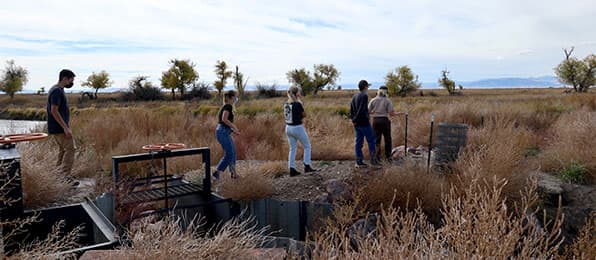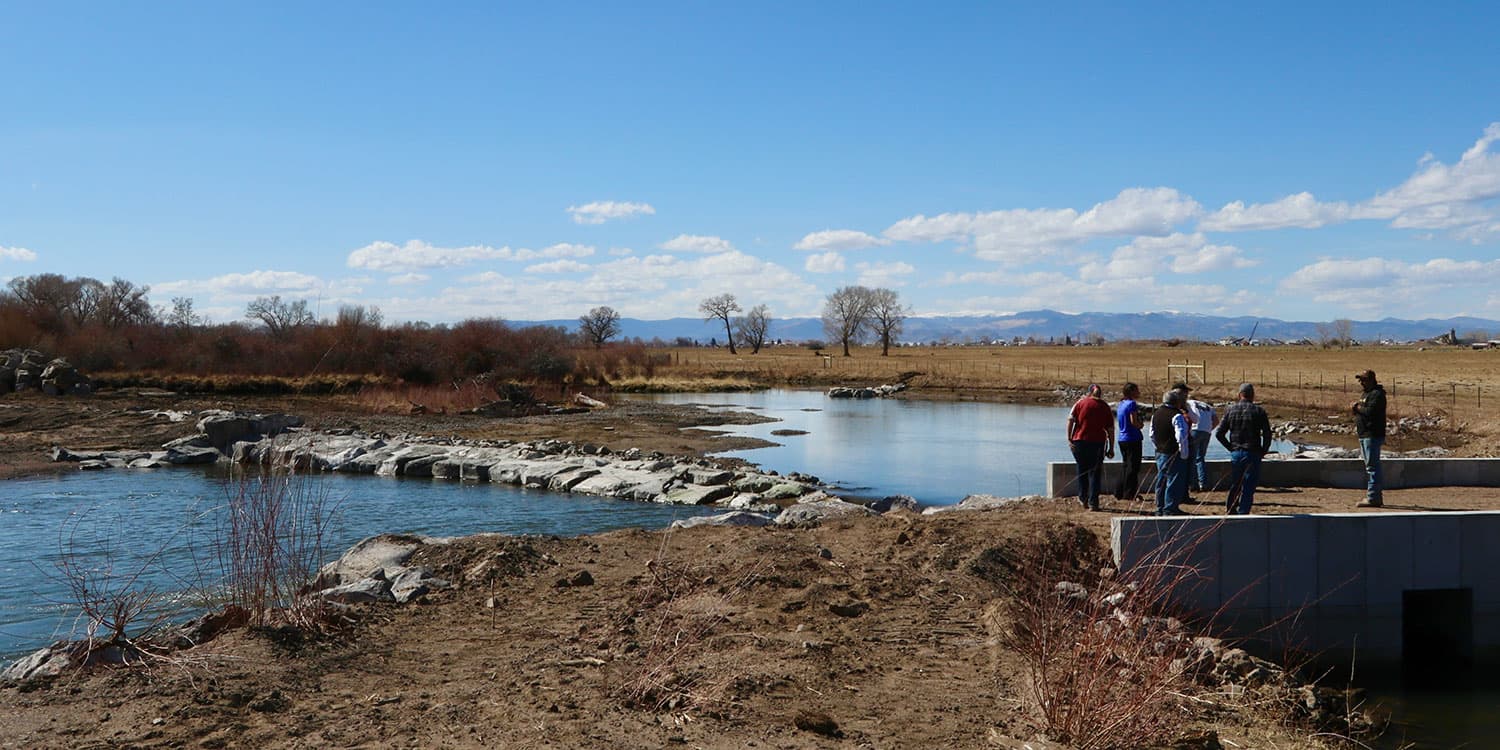To help students and community members better understand the water challenges and opportunities in the Valley, Adams State University is again offering the introductory Water 101: Water Essentials: How Water Works in the West course this fall semester. It’s the first step to a water studies minor, to a career in water, or deeper engagement as a community member. The Salazar Rio Grande del Norte Center at Adams State developed this new degree plan to help give students and community members the tools needed to work for a more sustainable water future for the San Luis Valley, for Colorado and the West.
Water 101 will be taught by local water expert Maya ter Kuile-Miller, a career agronomist and teacher. After earning her bachelor’s degree at Oxford University, Maya returned to Colorado for a master’s degree in agronomy at Colorado State University. She was involved in project management for the Alamosa River Watershed Restoration Foundation; sampling for Colorado Riverwatch; and now consults with many Valley farmers on issues from irrigation water management and crop nutrition to farm economics.
“In the arid West, water is more precious than gold,” ter Kuile-Miller said. “I look forward to navigating with you through these waters, including the basics of hydrology, water uses, administration, regulation, exploitation and some politics of this most valuable resource. I hope this course will help you find your niche as a citizen in a water scarce world.” Beyond the classroom, the course will also include local field trips that make the role of water come to life.
There are currently $400 scholarships available for this course, for enrolled Adams State students.

New this fall will be the HIST 340: Water and Equity course, being taught by Nick Saenz, Ph.D., professor of history. Saenz earned his doctorate in history at the University of California San Diego and has taught at Adams State since 2013. He served as president of the Sangre de Cristo National Heritage Area Board, Faculty Senate president, and is on both the Colorado Historic Preservation Review Board and the Colorado Historical Records Advisory Board.
“The course will explore water use across time and space, with a special emphasis on Colorado and the San Luis Valley,” said Saenz. “We will discuss how different communities have used water to pursue agriculture and how tensions between rural and urban demand have shaped the U.S. west. Our goal will be to uncover how water shapes and defines communities, contributing to their economic vitality and sense of identity.”
In addition to being available to Adams State students, local high schools can enroll in these courses as concurrent classes, for early college credits, through their school counselor.
Community members can also audit the courses as “Listening Classes” for $150, to deepen their water knowledge and engagement in the vital issues around water. To register visit Water Listening Class.
Learn more about the entire Water Studies Minor or email: salazarriograndecenter@adams.edu.



